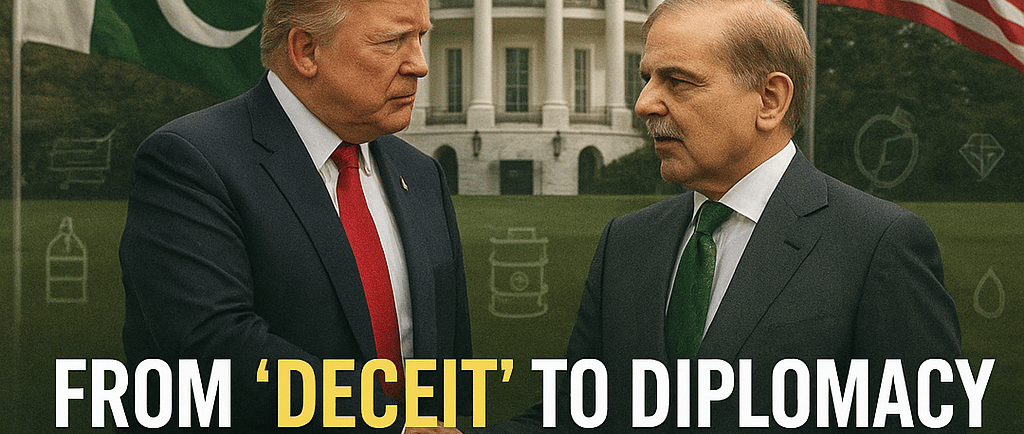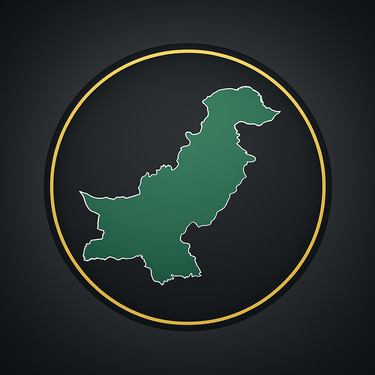From “Deceit” to Diplomacy: How Pakistan Turned Trump into a Surprising Ally
Discover how Pakistan successfully strengthened ties with Trump’s White House, gaining economic and security advantages while U.S.-India relations faced tension. Explore Islamabad’s strategic diplomacy and its impact on global politics.
INTERNATIONALNATIONAL
8/20/20253 min read


Pakistan’s Strategic Diplomatic Breakthrough in Washington: How Islamabad Won Trump’s Favor
ISLAMABAD — When Donald Trump secured a second presidential term in November, many in Pakistan braced for turbulence. His first term had tilted heavily toward India, with Islamabad often accused of “deception” and harboring militants. Expectations were low.
Yet, in a surprising turnaround, more than six months into Trump’s second term, Pakistan has managed to reposition itself as a valued partner in Washington. With U.S.-India ties under strain over trade disputes and personal clashes between Trump and Indian Prime Minister Narendra Modi, Islamabad has quietly executed a highly effective charm offensive.
A Diplomatic Role Reversal
Pakistan’s military and political leadership moved quickly after Trump’s reelection. General Asim Munir, the powerful army chief, described his recent U.S. visits as “a new dimension” in bilateral relations.
Pakistan’s efforts have paid off. Tariffs on Pakistani goods were reduced to 19 percent — one of the lowest in Asia — compared to India’s punitive 50 percent tariff for importing Russian oil. Trump has even publicly floated plans to explore Pakistan’s untapped oil reserves and welcomed proposals for joint cryptocurrency and rare mineral projects.
In parallel, Washington strengthened security cooperation by designating the Baluchistan Liberation Army (BLA) as a terrorist organization, aligning with Islamabad’s long-standing demand.
“We couldn’t ask for more,” said Mushahid Hussain Sayed, former chairman of the Senate Defense Committee. “Our interests are being preserved and advanced at a time when other countries are making concessions.”
Winning Over Trump’s Inner Circle
Pakistan’s outreach was far from conventional. It included hiring Javelin Advisors, a lobbying firm run by Trump associates George Sorial and Keith Schiller, and direct engagement with Congress through Interior Minister Mohsin Naqvi.
The turning point came in March, when Pakistan aided in capturing a senior ISIS figure linked to the deadly 2021 Kabul airport attack. Trump, in a rare acknowledgment, praised Islamabad during a speech to Congress. This signaled a dramatic shift in Washington’s tone.
Analysts note Pakistan’s ability to connect with Trump’s personal and family networks. A U.S.-backed cryptocurrency initiative, World Liberty Financial, signed an agreement with Pakistan’s Crypto Council in April — with Trump family-linked figures involved. Such moves built personal goodwill in addition to official diplomacy.
Securing Trump’s Attention on India-Pakistan Conflicts
The relationship gained further traction when Trump claimed credit for brokering a ceasefire after a flare-up between India and Pakistan earlier this year. Islamabad amplified the achievement, even suggesting Trump be nominated for a Nobel Peace Prize. India, on the other hand, dismissed U.S. involvement, deepening the rift with Washington.
In June, Trump invited Gen. Munir for a private lunch at the White House — an unusual honor for a foreign military chief. Insiders say this meeting cemented Pakistan’s credibility, with Munir pitching access to Pakistan’s natural resources.
“Trump admires straightforward generals,” Sayed explained. “Pakistan instinctively knew how to appeal to him.”
Risks Behind the Gains
Despite the diplomatic victories, experts caution against overconfidence. Michael Kugelman, a South Asia analyst, warned that Pakistan’s success rests on “shaky ground.” Trump remains unpredictable, and many fear his outreach to Islamabad is more about pressuring India than building a long-term alliance.
Pakistan’s economic proposals — from vast oil reserves to crypto hubs — face structural hurdles. Oil exploration has repeatedly failed, rare minerals lie in unstable regions, and crippling energy shortages could derail digital ventures.
Former ambassador Maleeha Lodhi cautioned: “Flattery is not a strategy. It cannot substitute for sustainable policy.”
The Road Ahead
Geopolitically, Washington still views India as the more strategic partner against China, while Pakistan remains heavily reliant on Beijing through massive infrastructure and defense projects under the China-Pakistan Economic Corridor (CPEC).
Even so, Islamabad sees an opportunity. Former ambassador Masood Khan argued: “We may not return to the golden era of the 1950s, but we can develop a partnership that benefits both the U.S. and Pakistan.”
For now, Pakistan has achieved what few expected — reshaping its image in Washington and positioning itself as a key player at a time of shifting global alliances. Whether this momentum lasts will depend on Islamabad’s ability to turn promises into performance, and on Trump’s notoriously volatile foreign policy instincts.
Explore
Your lens into Pakistan's vibrant stories.
Connect
Discover
+92-300-0440097
© 2025. All rights reserved.
